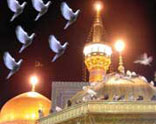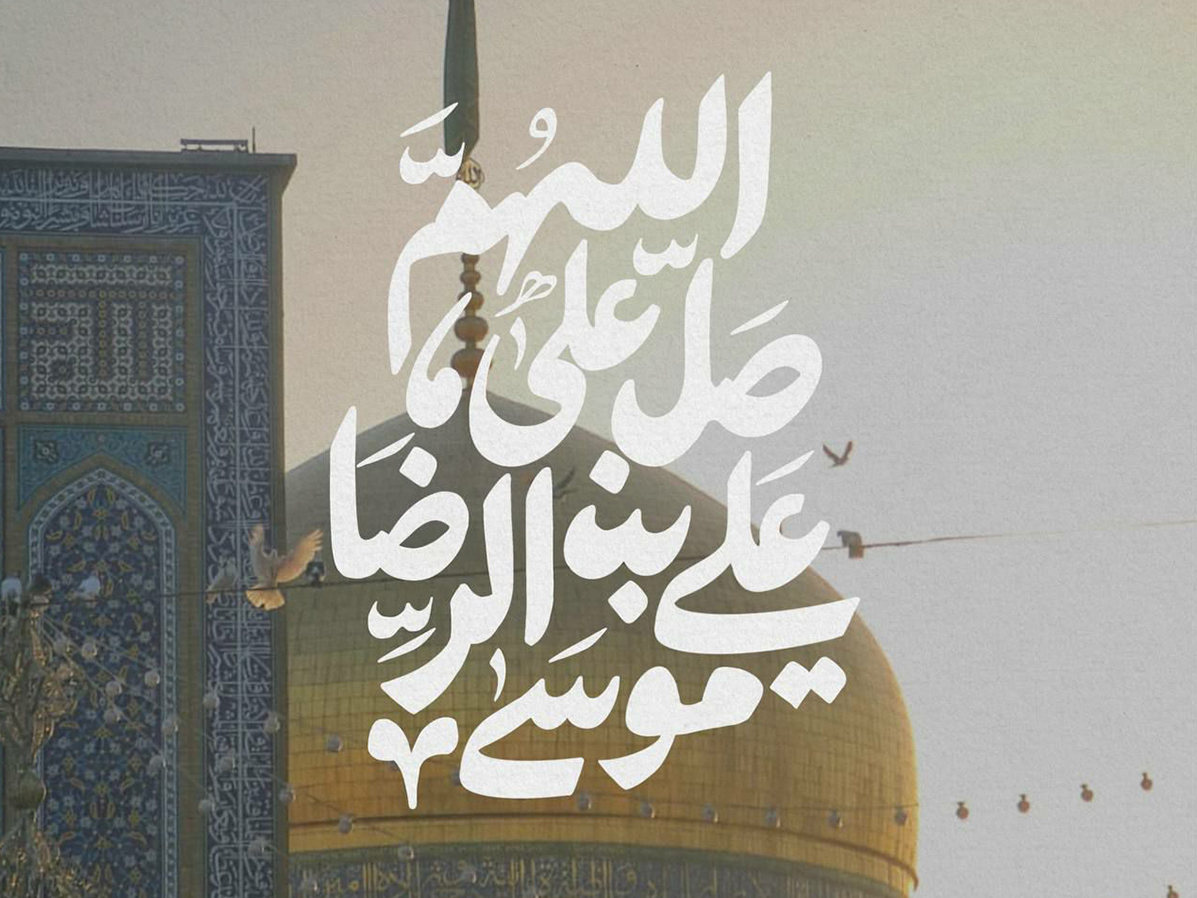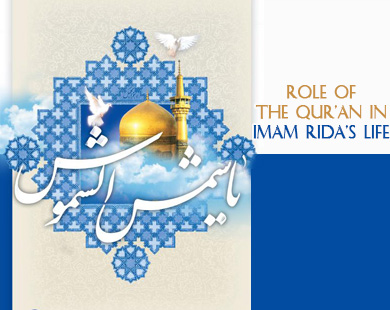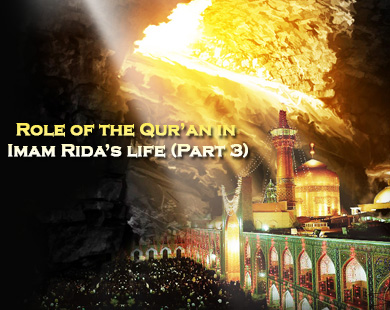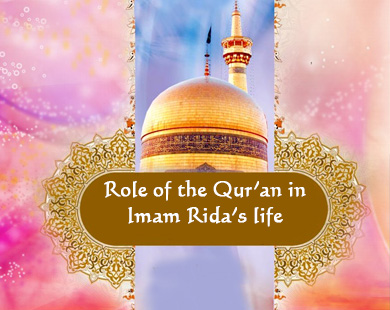Good manners constitute a significant part of one’s personality. They unveil the innermost nature of the individual, highlighting the extent of its purity of origin when it translates belief into action. The Imam was characterized by a most noble personality which won him the love of the commoners as well as the elite, by extraordinary humanity derived from the spirit of the Message itself one of whose custodians he himself was, a person who safeguarded it and inherited its innermost secrets.
Ibrahim ibn al-Abbas al-Suli is quoted saying: "I never saw Abul-Hassan al-Rida (A.S) angering anyone by something he said, nor did I ever see him interrupting anyone, nor refusing to do someone a favour he was able to do, nor did he ever stretch his legs before an audience, nor leaned upon something while his companion did not, nor did he ever call any of his servants or attendants a bad name, nor did I ever see him spit or burst into laughter; rather, his laughter was just a smile.When he was ready to eat and he sat to be served, he seated with him all his attendants, including the doorman and the groom." He adds, "Do not, therefore, believe anyone who claims that he saw someone else enjoying such accomplishments." A guest once kept entertaining him part of the night when the lamp started fading and the guest stretched his hand to fix it, but Abul-Hassan (A.S) swiftly checked him and fixed it himself, saying, "We are folks who do not let their guest tend on them."
Al-Manaqib states that Imam Rida (A.S) once went to the public bath-house and someone asked him to give him a massage, so he kept giving the man a massage till someone recognized him and told that person who that dignitary was. The man felt extremely embarrassed; he apologized to the Imam (A.S) and gave him a massage.
Muhammad ibn al-Fadl narrates the following anecdote regarding the Imam’s simple personality. He says: "Imam Rida (A.S), on the occasion of Eid ul Fitr, said to one of his attendants, May God accepts your good deeds and ours,' then he stood up and left. On the occasion of Eid ul Adha, he said to the same man, May God accepts our good deeds and yours.' I asked him, O son of the Messenger of God!
You said something to this man on the occasion of Eid ul Fitr and something else on the occasion of Eid ul Adha; why?' He answered: I pleaded God to accept his good deeds and ours because his action was similar to mine and I combined it with mine in my plea, whereas I pleaded God to accept our good deeds and his because we are capable of offering the ceremonial sacrifice while he is not; So, our action is different from his.'" Thus does Imam Rida (A.S) become in total harmony with his message in the area of ethics, personifying the latter into action derived from the spirit of the message whereby he ascends to the summit of human perfection, rising thereby to the shores of the individual’s own real greatness. It is through this and similar means that the sincerity of faith and loftiness and dignity of the self are recognized.
Imam Rida (A.S) defines for us the Islamic theory as the rules which govern the actual dealings of man with his brother man from which we can achieve the inspiration that Islam abolishes the then class distinctions among individuals and groups in the areas of public rights and the safeguarding of man’s dignity, and that the difference which we must recognize regarding these areas is the difference between one who obeys God and one who does not.
A man once said to the Imam: "By God! There is nobody on the face of earth who is more honorable than your forefathers." The Imam responded by saying: "Their piety secured their honor, and their obedience of God made them fortunate." Another man said to him: "By God! You are the best of all people!" He said to him: "Do not swear so. Better than me is one who is more obedient to God and more pious. By God! The following verse was never abrogated: And We have made you nations and tribes so that you may know each other; verily the best of you in God’s sight is the most pious."
Abul-Salt once asked him: "O son of the Messenger of God! What do you say about something people have been criticizing you for?" He asked: "What is it?" He said: "They claim that you call people your slaves." He said: "God! Creator of the heavens and the earth, Knower of the hidden and the manifest! I invoke Thee to testify that I have never said so, nor did I ever hear that any of my forefathers had said so! God! You are the Knower of the many injustices this nation has committed against us, and this is just one of them..."
The Imam here denies such an allegation about him and his forefathers and rejects the vicious accusation which their enemies use against him to tarnish his image, considering it one of the many injustices committed against the Ahl-ul-Bayt (A.S).
Rather, he and the Household of the Prophet (PBUH) consider people to be equal in their general obligations except in the right of government which God ordained to be theirs solely, for others have no right to claim it for themselves. With the exception of the right to obey God in its most pristine implications which raised their status in the sight of God and man, all are the slaves of God. They share the same parents and worship the same God.
* Source: About Imam Rida (A.S). By: Muhammad Jawad Fadlullah


